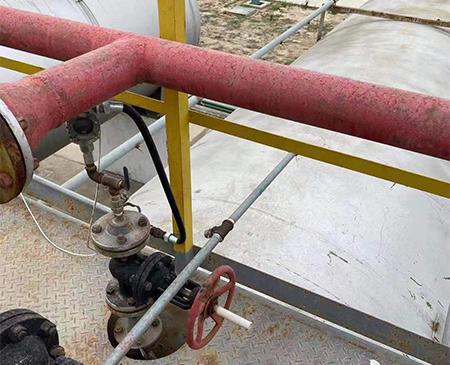Requirements for pressure sensors in the petrochemical industry
Pressure sensors are one of the most commonly used measuring devices in automatic control in the petrochemical industry. In large-scale chemical projects, almost all applications of pressure sensors are included: differential pressure, absolute pressure, gauge pressure, high pressure, micro differential pressure, high temperature, low temperature, as well as remote transmission flange pressure sensors made of various materials and special processing.
In the process of modern continuous production, stable and reliable pressure sensors are a powerful guarantee for the production process. Once there is a measurement error or even a shutdown fault, the economic losses that come with it will be incalculable. The stability and reliability of pressure sensors have become the primary requirements for pressure sensors in the petrochemical industry.

The demand for pressure sensors in the petrochemical industry mainly focuses on three aspects: reliability, stability, and high precision. Usually, the measurement of pressure sensors will drift with changes in working environment and static pressure. In some small pressure or differential pressure measurement scenarios, this drift is likely to be quite severe. Obtaining relatively accurate measurements under different working conditions to maintain production stability and ensure process consistency is a reflection of pressure sensor stability and a requirement for pressure sensor stability in the petrochemical industry.
On the basis of stability and reliability, high precision is a higher demand for pressure sensors in the petrochemical industry. The accuracy of control depends on the precision of measurements taken during the control process. The higher the measurement accuracy, the higher the control accuracy. Among them, reliability and many additional requirements, such as range ratio, bus type, etc., depend on the structural design of the sensor, the level of mechanical processing technology, and structural materials.
The measurement accuracy and response speed of pressure sensors correspond to their measurement precision, while the stability of pressure sensors corresponds to their temperature and static pressure characteristics as well as long-term stability. The demand for pressure sensors in the petrochemical industry is reflected in four aspects: measurement accuracy, fast response, temperature and static pressure characteristics, and long-term stability.

 Your message must be between 20-3,000 characters!
Your message must be between 20-3,000 characters! Please check your E-mail!
Please check your E-mail!  Your message must be between 20-3,000 characters!
Your message must be between 20-3,000 characters! Please check your E-mail!
Please check your E-mail! 
